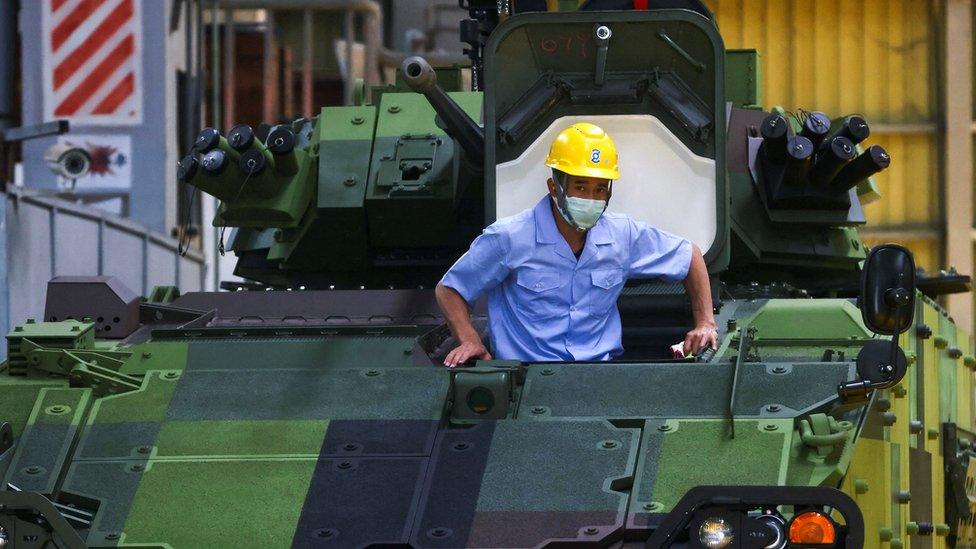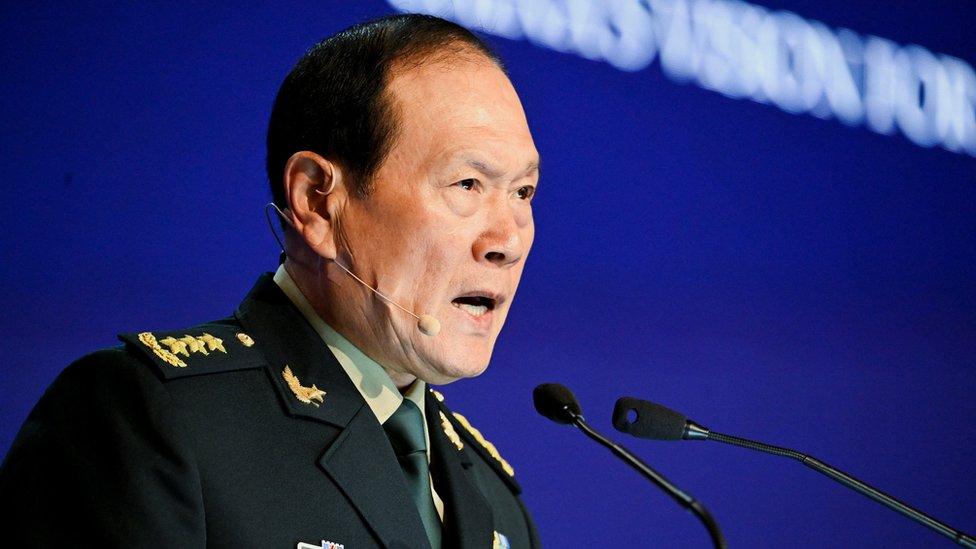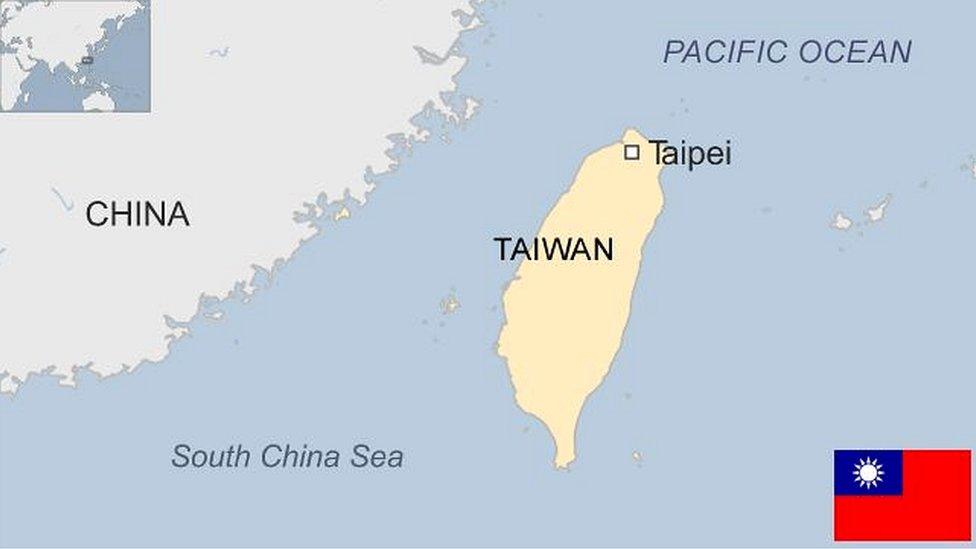Western nations must do more to boost Taiwan defence, says Truss
- Published
- comments

Western nations need to do more to ensure Taiwan can protect itself against China, the UK's foreign secretary has urged.
Liz Truss said she was working with allies in the G7 group to ensure the self-ruled island has "the defence capability it needs".
She added the West had failed to arm Ukraine early enough to deter Russia from its invasion earlier this year.
It comes amid fresh tensions between China and the US over Taiwan.
In an apparent change of tone, US President Joe Biden recently stated unequivocally that the US would defend the island if China attacked.
The US has previously been vague on what it would do in such a situation - although the White House has insisted its stance has not changed.
Taiwan, located 100 miles off the coast of mainland China, sees itself as an independent country with its own democratically-elected leaders.
But China sees Taiwan as a breakaway province, which it can take by force if necessary.
Asked on BBC Radio 4's Today programme whether the UK should sell more weapons to Taiwan, Ms Truss said the government's role was to licence exports from defence companies.
But she added: "Collectively we need to do more, and this is a discussion I'm having with my G7 colleagues."
Ukraine comparison
Drawing a parallel with the conflict in Ukraine, she said: "We need to learn the lessons of Ukraine. We didn't do enough early enough.
"And by 'we' I'm talking about the free world, the collective West, to make sure that Ukraine was able to defend itself, so-called deterrence by denial.
"That enabled Putin to think that he could stage an easy invasion that he could win within days, so we need to make sure that we protect peace and stability in the Taiwan Straits.
"We also need to make sure that together, the free world are ensuring that Taiwan has the defence capability it needs."
She added that Western nations must "make sure that we are not overly economically exposed to China" or "end up in a position of strategic dependency".
China reacted angrily to President Biden drawing parallels between Taiwan and Ukraine recently, calling the comparison "absurd".
Ros Atkins on… China-Taiwan Tensions
Ms Truss's comments come as Nato countries warned of the "systemic challenges" posed by China to the security of the transatlantic military alliance.
In a document agreed at a summit in Madrid on Wednesday, the alliance said China's "coercive policies" challenged Western interests.
It also warned of a "deepening strategic partnership" with Russia to "undercut the rules-based international order".
In a panel discussion at the summit, Ms Truss said it was important Taiwan was able to defend itself and Beijing avoided "a catastrophic miscalculation" such as invading the island.
China's Foreign Ministry has accused her of displaying "surprising self-righteousness", and accused Nato of "hyping up the so-called China threat".
Tensions between the US and China have increased in recent weeks over aircraft activity near the island.
Earlier this month, US Defence Secretary Lloyd Austin said there were record numbers of Chinese aircraft flying near the island, and this undermined "peace and stability in the region".
China's military has also recently accused the US of endangering stability over the flight of a US Navy plane through the Taiwan Strait.

China and Taiwan: The basics
Why do China and Taiwan have poor relations? China sees the self-ruled island as a part of its territory and insists it should be unified with the mainland, by force if necessary
How is Taiwan governed? The island has its own constitution, democratically elected leaders, and about 300,000 active troops in its armed forces
Who recognises Taiwan? Only a few countries recognise Taiwan. Most recognise the Chinese government in Beijing instead. The US has no official ties with Taiwan but does have a law which requires it to provide the island with the means to defend itself.

- Published14 June 2022

- Published15 January 2024
